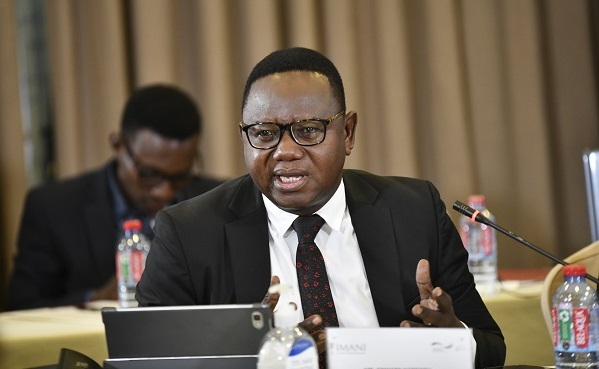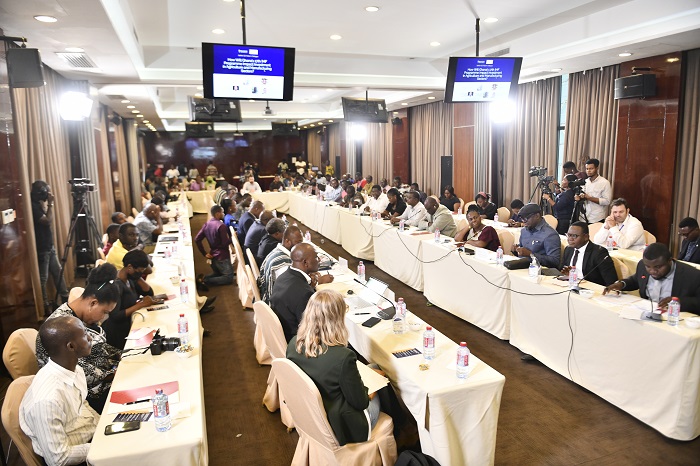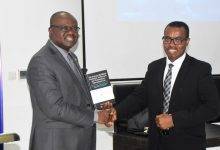
The General Agriculture Workers Union (GAWU) has expressed its opposition to the government’s decision to seek financial bailout from the International Monetary Fund (IMF).
According to the union, after having engaged the IMF for 16 occasions without any solution to the economic woes of the country, it was evident that that the solution does not lie with the bretton wood institution.

“The IMF is not the solution to Ghana’s economic problems. In fact, they have been part of our problem. With government now deciding to go to the IMF for a bailout, we should all be ready that our problems will be exacerbated,” General Secretary of the Union, Edward Kareweh, said at roundtable discussion in Accra on Wednesday.
The discussion, organised by policy think tank, Imani Africa and German development agency, GIZ dubbed IMANI-GIZ Reform Dialogue was to examine the impact of the imminent engagement with the fund on agriculture and manufacturing.
It was on the theme: ‘How will Ghana’s 17th IMF programme impact investment in the agriculture and manufacturing sectors.”
In the view of Mr Kareweh, Ghana had all the experts in the country to diagnose the perennial problems of the economy and arrive at a lasting solution, rather than running to the Fund anytime the economy was under distress.
He said the IMF must also be bold to decline any invitation by Ghana to help it return its economy to the path of growth, having given that assistance 16 previous times.
The IMF, he said, was known for introducing austerity measures to free the capital space of the country; measures he believed could affect investment in the agric sector.
“IMF bailouts have always been with conditionalities. It has never been without conditionalities and those conditionalities are never in the interest of this country. If those conditionalities have ever been in the interest of this country, why are we where we are today?” he quizzed.
To him, the onus was on government to ensure a sustained economic growth by implementing policies that enhance economic growth and favours the players in the local economy.
“What can IMF if government decides to decrease investment in agriculture? What can IMF do when government is refusing to fix the road to the farm gate? What can IMF do when government gives wrong data and statistics? What can IMF do when government subsidise import through the discounted benchmark value on items that are produced here, yet you decide to subsidise their importation?”
But Economist and Professor of Finance at the University of Ghana, Godfred Alufar Bokpin, said the government had no other choice than to run to the IMF before the economy crushed like it happened in Sri Lanka.
He said many of the things blamed on the fund, especially in developing countries were unfair to the fund because “it does not impose programmes on any country. We develop the programmes ourselves”.
Professor Bokpin urged the government to engage broadly in developing a programme for the impending bailout to ensure that the programme addressed the fragilities of the economy rather than one tilted towards elections.
BY JULIUS YAO PETETSI






